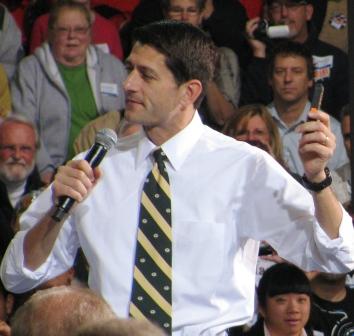Every so often, it can be said that it is time to go out with the old and in with the new.
After the merlot-drinking, golf-loving John Boehner exited the speakership of the House of Representatives this past month, one can hope that there will be a marked difference in leadership as Paul Ryan ascends as the new Speaker of the House.
Ever since Boehner began presiding over the Republican majority in 2011, Congress as a whole became more and more dysfunctional by the day, as the only thing that seemed to compel the two parties to act was a looming crisis.
Enter Paul Ryan.
Since winning a seat in the House from his hometown of Janesville, Wisconsin in 1998, Ryan has worked his way up through Congress the old-fashioned way: by focusing on the issues. For Ryan, a follower of economic conservatives like Jack Kemp and Ronald Reagan, the most pressing issues were the archaic tax code and the ever-growing entitlement programs, such as Medicare, Medicaid and Social Security, which crowded out other important necessities, such as defense and education. With these issues in mind, Ryan drafted budgets that called for a simplification of our tax code and realistic reforms to preserve important entitlement programs for the poor and the elderly.
These reforms have been characterized as harsh on the working poor and the middle class. Some liberals have gone as far as making an ad that showed a Ryan doppelganger pushing an elderly lady in a wheelchair off of a cliff.
Despite the tough criticism of Ryan’s policies, Mitt Romney selected Ryan to be his candidate for vice president in 2012. Although his ticket lost the election in 2012, Ryan became an important negotiator for bipartisan legislation, such as the Bipartisan Budget Act of 2013 with Senator Patty Murray (D-WA), which lifted certain spending caps on defense and domestic spending programs and allowed the government to function for two years without the worry of another shutdown.
After nearly 16 years in Congress, Ryan has ascended to the highest office in the House in Boehner’s tread. Perhaps because of his unique character and his disposition as a leader (a rare trait in Washington nowadays), Ryan may be the perfect man for the job of House speaker right now. Ryan’s first job will be to unite the House Republicans so that his party can govern effectively. Ryan has already shown his capabilities as a leader through leading the House Budget Committee and the House Ways and Means Committee. He also has shown respect to all Republicans, including many recently elected representatives who are more hard-right and associate with either the tea party or the Freedom Caucus.
The major issues that face the new speaker include immigration reform, tax reform, paid family leave and reform of entitlement programs. It is unlikely that Ryan will be able to make much progress in the time remaining for this Congress, as the partisan rancor will only get worse as the next election approaches.
Ryan, on numerous occasions, has supported current immigration laws but has also supported policies that allow for more visas for skilled workers and a pathway to citizenship for those who may live here illegally. However, many of his fellow Republicans are not likely to support a measure that could be decried as “amnesty” in an election year.
On the issues of tax reform, Ryan had reached across the aisle to many Democrats to pass comprehensive tax reform, only to be hindered by the desire of the Obama administration and Democrats for additional tax revenue – a non-starter for many Republicans. On paid family leave and entitlement programs, it is unlikely that the speaker will introduce any new spending programs or pass anything more than a stopgap measure to help fix entitlement programs.
Although Ryan is unlikely to accomplish much in terms of reform between now and the inauguration of a new president, he may still be able to set the changes in motion that will allow Republicans and Democrats to collaborate in the near future. Ryan understands that the era of hardline Republican opposition must come to an end and that his party must also propose solutions to the challenges facing our nation.
In the 21st century, America still faces serious problems. We need capable leaders at all levels of society so that we can confront these problems head-on and solidify another “American Century.” Ryan is serious about the task ahead. His character and disposition as a constructive conservative are hopeful signs that the politicians we send to Washington are not just men and women who are in it for themselves, but rather leaders who have our nation’s best interest in mind.
Aditya Shah is a sophomore majoring in microbiology, immunology and economics.






